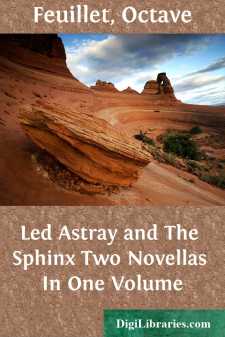Categories
- Antiques & Collectibles 13
- Architecture 36
- Art 48
- Bibles 22
- Biography & Autobiography 815
- Body, Mind & Spirit 144
- Business & Economics 28
- Children's Books 18
- Children's Fiction 14
- Computers 4
- Cooking 94
- Crafts & Hobbies 4
- Drama 346
- Education 58
- Family & Relationships 59
- Fiction 11835
- Games 19
- Gardening 17
- Health & Fitness 34
- History 1378
- House & Home 1
- Humor 147
- Juvenile Fiction 1873
- Juvenile Nonfiction 202
- Language Arts & Disciplines 89
- Law 16
- Literary Collections 686
- Literary Criticism 179
- Mathematics 13
- Medical 41
- Music 40
- Nature 180
- Non-Classifiable 1768
- Performing Arts 7
- Periodicals 1453
- Philosophy 65
- Photography 2
- Poetry 896
- Political Science 203
- Psychology 44
- Reference 154
- Religion 515
- Science 126
- Self-Help 85
- Social Science 83
- Sports & Recreation 34
- Study Aids 3
- Technology & Engineering 59
- Transportation 23
- Travel 463
- True Crime 29
Our website is made possible by displaying online advertisements to our visitors.
Please consider supporting us by disabling your ad blocker.
Rescuing the Czar Two authentic Diaries arranged and translated
by: James P. Smythe
Categories:
Description:
Excerpt
I
FROM SPLENDOR TO GLOOM
The ice was breaking up along the river Neva, in 1917. At the Winter Palace, the ladies were rejoicing over the good news. The Czar in the field was reorganizing his dismembered armies. America was severing diplomatic relations with the Central Powers. The Asquith Ministry had dissolved and Lloyd-George was hurling his dynamic personality into organizing Victory for the Allied forces in the field. Kut-el-Amara had fallen to the British—Bagdad had been taken—the Crescent was fleeing before the Cross of Russia—the Grand Duke was driving the Turk from Trebizond. Even Hindenburg was retiring along the Western Front—France with unexampled gallantry was holding back the Juggernaut—America was getting mad and rolling up its sleeves.
The women at the palace did not disguise their happiness over the cheerful events that heralded the approach of Victory. The evening star that poured down its steel-blue rays upon the crosses of St. Isaac's presaged to their encouraged fancies the early dawn of peace. Yet the chilly wind that whistled round their dull-red household was laden with a frosty air that blew from official regions and "froze the genial current of their souls." The icy glances of ambitious princelings, reflecting back the sinister sullenness of designing ministers, fell like a spectral gloom upon their happy hearts. A hollow roar rolled down the Nevskii Prospekt—a guard burst into the palace and put the women under arrest. The pent-up Revolution at last had burst—anarchy howled around the capital—the isolated Czar was captive, and plotting princelings joined hands with puny lawyers to browbeat courageous women and drive the chariot of State!
The miserable fiasco of a delirious Revolution went careering through the giddy maze of treachery and madness until a frenzied wave of rapine and disorder swept all the noblewomen of the Imperial household into a barricaded fortress around which lust and inebriety held unsated and remorseless vigil for the prize. (See Part II: Tumen.)
Among these prisoners of State were five women who realized that the Power which had organized disorder as a feature of its military strategy had also honeycombed the Army, the Navy and the State with its agencies of pillage and so undermined the public conscience that their purity and virtue, more than their jewels and fortune, became an open challenge to the vanity of mob lust.
The younger of these women in their unsullied maidenhood looked longingly and unsuspectingly in the direction of Siberia. They were learning by degrees that the semblance of freedom which offered a pathway to escape was nothing but a strategem employed by pretended friends to entrap them into more cruel and ruthless hands. On every side loomed the evidence of their danger. The villainous stares of foreign interlopers, the ribald jests of guards, the furtive glances of the envious, the scowls of the emancipated underling, the profanity of the domineering agitator who denounced respectability and clamored for possession of the girls,—no moment of their lives was free from ugly threats; no retreat, save the wild jungle or the mountains, offered any liberation from the immodest glare of cruel, licentious eyes....












